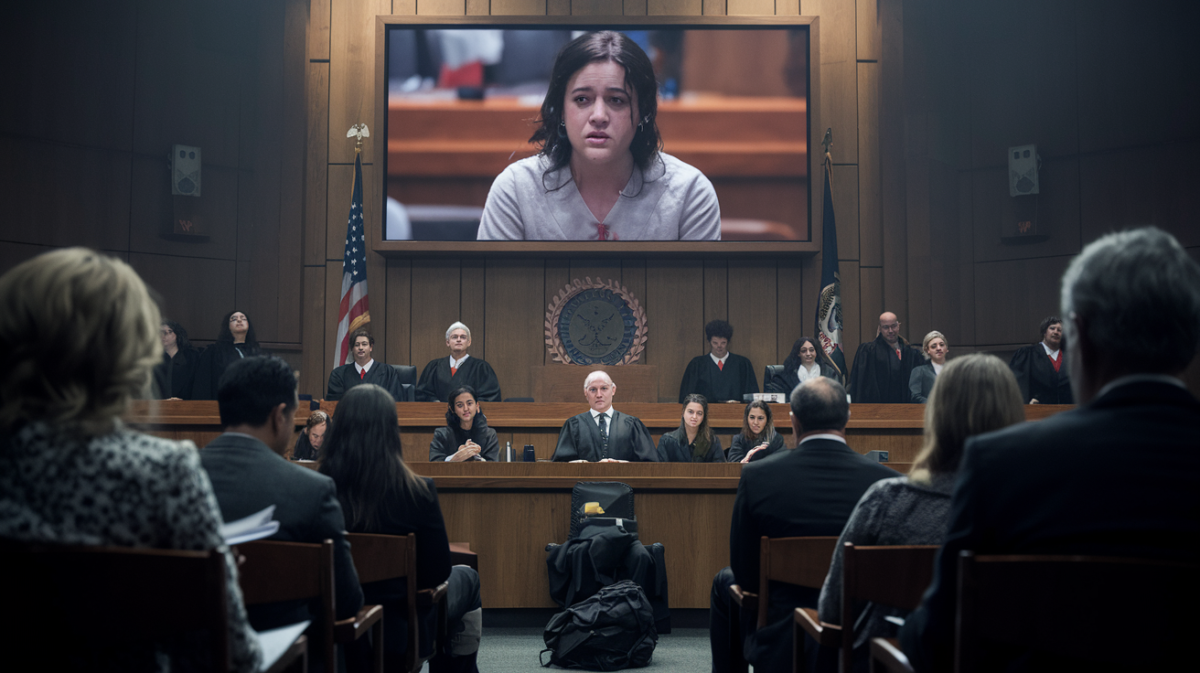Groundbreaking Use of AI in Sentencing Raises Ethical Questions
In an unprecedented move, the family of Christopher Pelkey, an Arizona man fatally shot in a 2021 road rage incident, used artificial intelligence (AI) to create a video of him delivering a victim impact statement during the sentencing of his killer. The AI-generated video, which featured Pelkey forgiving Gabriel Paul Horcasitas and advocating for love and appreciation of life, has ignited a debate about the ethical implications of such technology in legal proceedings.
The Emotional Impact of the AI Statement
The video, played in a Maricopa County courtroom, showed Pelkey speaking directly to Horcasitas, who was convicted of manslaughter. The AI rendering captured Pelkey’s voice, facial expressions, and speech patterns, creating a lifelike representation. His words, written by his sister Stacey Wales, emphasized forgiveness and the importance of cherishing every moment.
- Forgiveness: Pelkey’s message urged his killer to reflect on his actions and seek redemption.
- Advocacy for Life: The video encouraged viewers to value their relationships and make the most of their time.
- Family Tribute: The statement was described by Judge Todd Lang as a reflection of Pelkey’s character and the values instilled by his family.
How the AI Video Was Created
Stacey Wales, Pelkey’s sister, collaborated with her husband and a friend experienced in AI technology to bring her brother’s voice back to life. Using a short video clip of Pelkey, they replicated his voice and facial movements, crafting a script that mirrored his personality. The result was a poignant and eerily realistic digital avatar.
Legal and Ethical Concerns
While AI is increasingly used in courtrooms for tasks like legal research, this marks the first known instance of an AI-generated victim impact statement. The case has raised concerns among legal experts:
- Potential for Misuse: Critics worry about the risk of deepfakes—AI-generated content designed to deceive—being used to manipulate court decisions.
- Legal Precedent: Arizona law permits digital victim statements, but the defense has questioned the judge’s reliance on the AI video, with an appeal underway.
- Validation: Nearly 50 letters from family and friends supported the authenticity of the AI statement, but the case highlights the need for clear guidelines.
Comparing AI in Legal Systems
| Use Case | Benefits | Risks |
|---|---|---|
| Legal Research | Speeds up case preparation, reduces costs | Potential for biased algorithms |
| AI-Generated Evidence | Can recreate scenarios for clarity | Risk of fabricated or misleading content |
| Victim Impact Statements | Gives victims a voice posthumously | Ethical concerns about authenticity |
The Future of AI in Courtrooms
This case underscores the rapid evolution of AI in the legal system. While the technology offers innovative ways to deliver justice, it also demands careful scrutiny. Legal scholars and policymakers are calling for:
- Regulation: Clear rules on the use of AI-generated content in court.
- Transparency: Disclosure of how AI tools are used to create evidence.
- Ethical Frameworks: Guidelines to prevent misuse while preserving the benefits of AI.
A Message of Forgiveness
Beyond the legal debate, Pelkey’s AI statement left a lasting impression on those in the courtroom. His words—urging love, forgiveness, and appreciation for life—resonated deeply. Whether this becomes a turning point for AI in the justice system or a cautionary tale remains to be seen, but the case has undeniably opened a new chapter in the intersection of technology and law.







